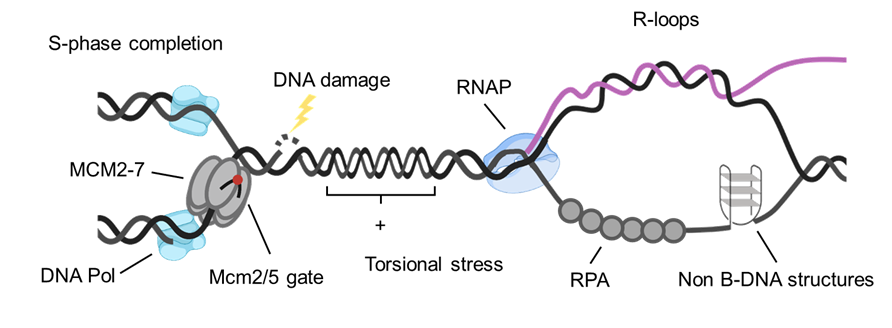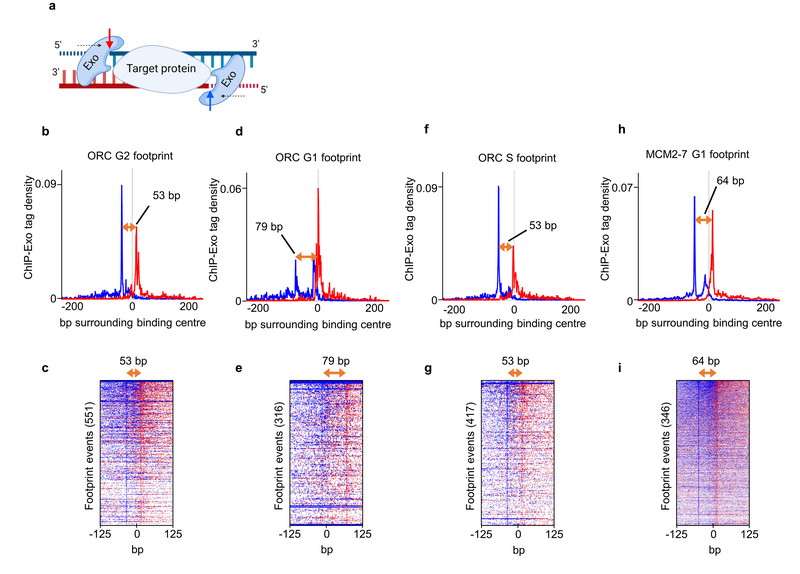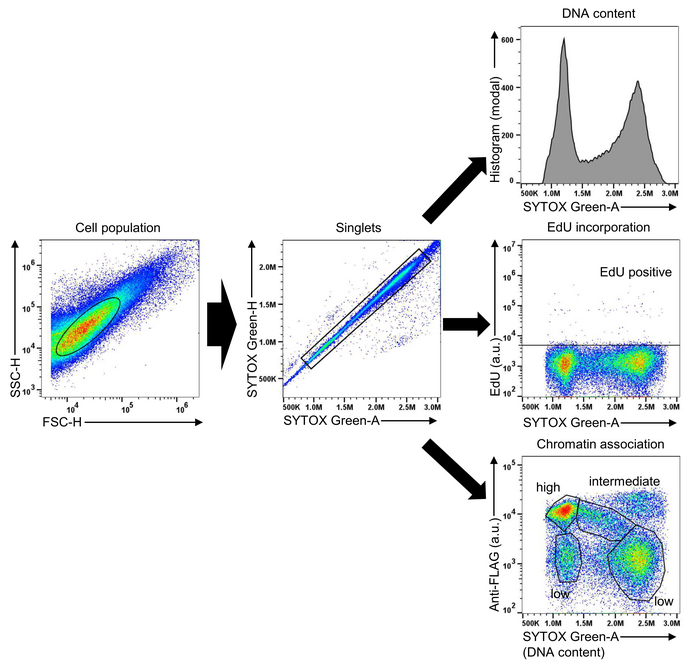Ulrich Lab
Research Publications Group Members Biography Team Leader - Reuter Team Leader - WollscheidThe replicative helicase MCM2-7 in DNA replication and genome maintenance
Eukaryotic cells duplicate their vast genomes rapidly by initiating DNA replication from hundreds or even thousands of origins during S-phase of the cell cycle. Recently, we mapped the genome-wide molecular footprints of the origin replication complex (ORC) and replicative helicase MCM2-7 in budding yeast. We show that ORC and MCM2-7 have overlapping origin binding sites, which renders DNA licensing a self-limiting process that ensures distributive helicase loading along the genome (Reuter et al., 2024). The subsequent, precise duplication of chromosomal DNA is essential for preserving the cell's genetic material and when misregulated presents a major cause of genomic instability, cancer and ageing. Yet little is known about the molecular mechanisms that allow the replication machinery to preserve genomic stability when encountering obstacles, mainly due to missing tools to trap the unwinding helicase in vivo.

Research vision
The goal of my research is to understand the life cycle of the replicative helicase MCM2-7. This includes how origins are organised and recognised in mammalian cells, how the replicative helicase is loaded and activated, as well as how cells avoid, tolerate, or resolve collisions with inherent obstacles and DNA damage during DNA replication. Applying a unique mix of high-resolution genomics and other state-of-the-art, high-throughput technologies together with AI-driven tools will highlight the MCM2-7 complex as a central regulatory hub for genome maintenance in eukaryotes. Connecting my findings to disease-relevant mutations or copy number variations might open new therapeutic avenues in the future to either lead cancer cells into excessive genome instability and death or to identify new targets for healthy ageing.
For further information, publications and open positions, see my research website.


Luitpold Maximilian Reuter

Positions held
- Since 2022:
Independent team leader, Institute of Molecular Biology (IMB), Mainz - 2016 - 2022:
Research Associate and Assistant Supervisor, MRC-LMS and Imperial College London, UK - 2015 - 2016:
Postdoc, Institute of Biochemistry, Justus-Liebig University Giessen, Germany
Education
- 2015:
PhD in Biochemistry, Ludwig-Maximilians-University, Munich, Germany - 2011:
Diploma in Human biology, Philipps-University Marburg, Germany
Selected publications
Bejarano Franco M, Boujataoui S, Hadji M, Hammer L, Ulrich HD and Reuter LM (2024) Analysis of cell cycle stage, replicated DNA, and chromatin-associated proteins using high-throughput flow cytometry. Biol Chem, doi: 10.1515/hsz-2024-0058 Link
Reuter LM, Khadayate SP, Mossler A, Liebl K, Faull SV, Karimi MM and Speck C (2024) MCM2-7 loading-dependent ORC release ensures genome-wide origin licensing. Nat Commun, 15:7306 Link
Riera A, Barbon M, Noguchi Y, Reuter LM, Schneider S and Speck C (2017) From structure to mechanism-understanding initiation of DNA replication. Genes Dev, 31:1073-1088 Link
Reuter LM and Sträßer K (2016) Falling for the dark side of transcription: Nab2 fosters RNA polymerase III transcription. Transcription, 27:69-74 Link
Reuter LM, Meinel DM and Sträßer K (2015) The poly(A)-binding protein Nab2 functions in RNA polymerase III transcription. Genes Dev, 29:1565-75 Link

